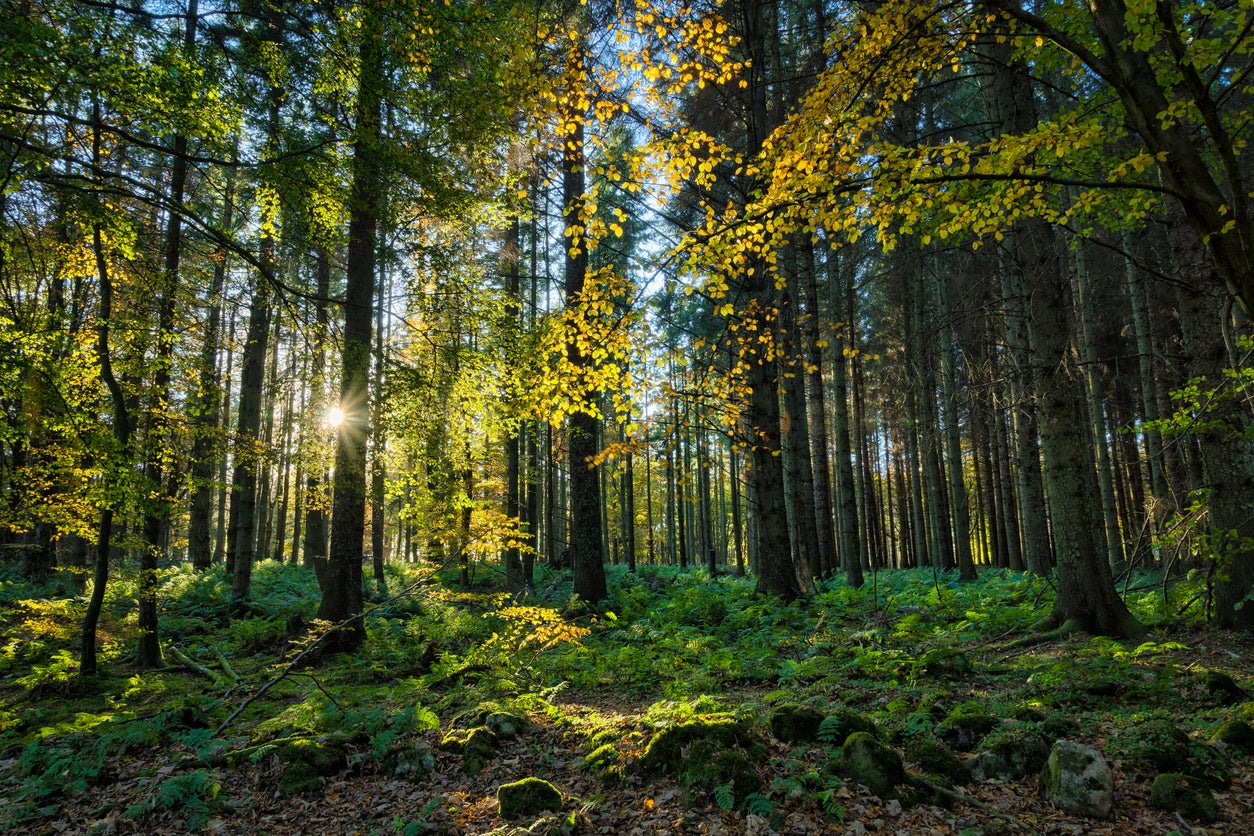We cannot reach net zero without protecting and restoring our natural world
We can deliver up to 37 per cent of the emissions reductions that we need by improving the way forests, grasslands, agriculture and other lands are managed


This year, we’ve had the starkest warnings yet of the terrifying future in store if we fail to keep global temperature rises within 1.5 degrees. With Cop26 now underway, we stand at a crossroads: either deliver a tangible trajectory towards addressing the climate emergency, or risk passing a point of no return.
Globally, Cop26 represents a significant moment for world leaders to take bold action on tackling climate change and action to help our natural world recover. Natural England, the Environment Agency and the Forestry Commission stand together to call for nature-based solutions to be prioritised. This will not only help us adapt society, so we are more resilient to climate disruption, it will also reduce emissions helping to reach net zero.
We cannot reach net zero or limit global temperature rises to 1.5 degrees without protecting and restoring our natural world. Through improving the way forests, grasslands, agriculture and other lands are managed, our research shows we can deliver up to 37 per cent of the emissions reductions that we need globally by 2030, while at the same time making contributions toward resilience and adaptation. We have a chance – and a responsibility – to use Cop26 to catalyse the change we need to reset our relationship with nature.
Here in England, establishing and managing trees, forests, and woodlands so that they are fit for the future must be a key part of our nation’s response. As the government’s key environmental agencies, we are all supporting the commitment to treble rates of tree and woodland establishment by the end of this parliament and are committed to making sure the right trees go in the right place for the right reason. This includes making sure trees and woodlands are resilient to the challenges of a changing climate themselves, by creating new woods via natural regeneration.
Extreme natural hazards are becoming ever more commonplace globally. Natural restoration – protecting habitats like wetlands, wooded hillsides and saltmarshes to reduce flood risk, as well as safeguard biodiversity – can curtail these mounting impacts.
Alongside trees, our focus on peatlands is bringing further climate change benefits, not only in keeping carbon locked up but in helping to reduce flood risk, while also contributing to our ambitions for a Nature Recovery Network.
The Nature Recovery Network will also help wildlife populations be resilient in the face of climate change, connecting habitats and so enabling species to move through the landscape as temperatures increase and conditions change.
We are already playing a central role in making the country more resilient. Since 2015, more than 300,000 homes and nearly 600,000 acres of agricultural land have been better protected from flooding. All on time and on budget.
The Independent has launched a petition calling on world leaders to take meaningful action on the climate crisis immediately. Sign the petition by using the form below and we thank you for your support
The Environment Agency completed the £15 million Natural Flood Management programme in March. This week, the Environment Agency published a report that shows how nature-based solutions can complement hard engineered defences to make communities more resilient to flooding and address biodiversity loss as well as the climate crisis at the same time.
By using small interventions upstream of flood risk areas, we created an equivalent of 1.6 million cubic metres of water storage; improved 4,000 hectares of habitat; and planted 100 hectares of woodland.
Too often green recovery is portrayed as a luxury we can’t afford – when in fact the reverse is true. Our economy and our society cannot be sustainable if the planet they rely on is suffering from catastrophic climate change and wildlife loss. By investing in nature recovery and adaptation we can bring people much closer to wildlife-rich green spaces and provide the services our economy requires, securing a healthy society and economy.
To keep up to speed with all the latest opinions and comment sign up to our free weekly Voices Dispatches newsletter by clicking here
Cop26 is an opportunity for world leaders to commit to raising the vital funding to adapt the global economy for the green age. All government departments, from health to education, transport to housing, must embed nature recovery and climate change into their agendas. This extends beyond government too; we know that there is a significant appetite across the private sector to invest in the natural environment and bring about long-term benefits for society at large. But further action is needed.
Putting the natural world on a road to recovery now is essential to everything that comes next: transforming the way we live, how our economies are run, and how we care for our environment. Nature recovery and adaptation can take us down the right path at this pivotal crossroads – if we all work together to achieve it.
Emma Howard Boyd is chair of the Environment Agency
Tony Juniper is chair of Natural England
Sir William Worsley is chair of the Forestry Commission
Join our commenting forum
Join thought-provoking conversations, follow other Independent readers and see their replies
Comments
Bookmark popover
Removed from bookmarks